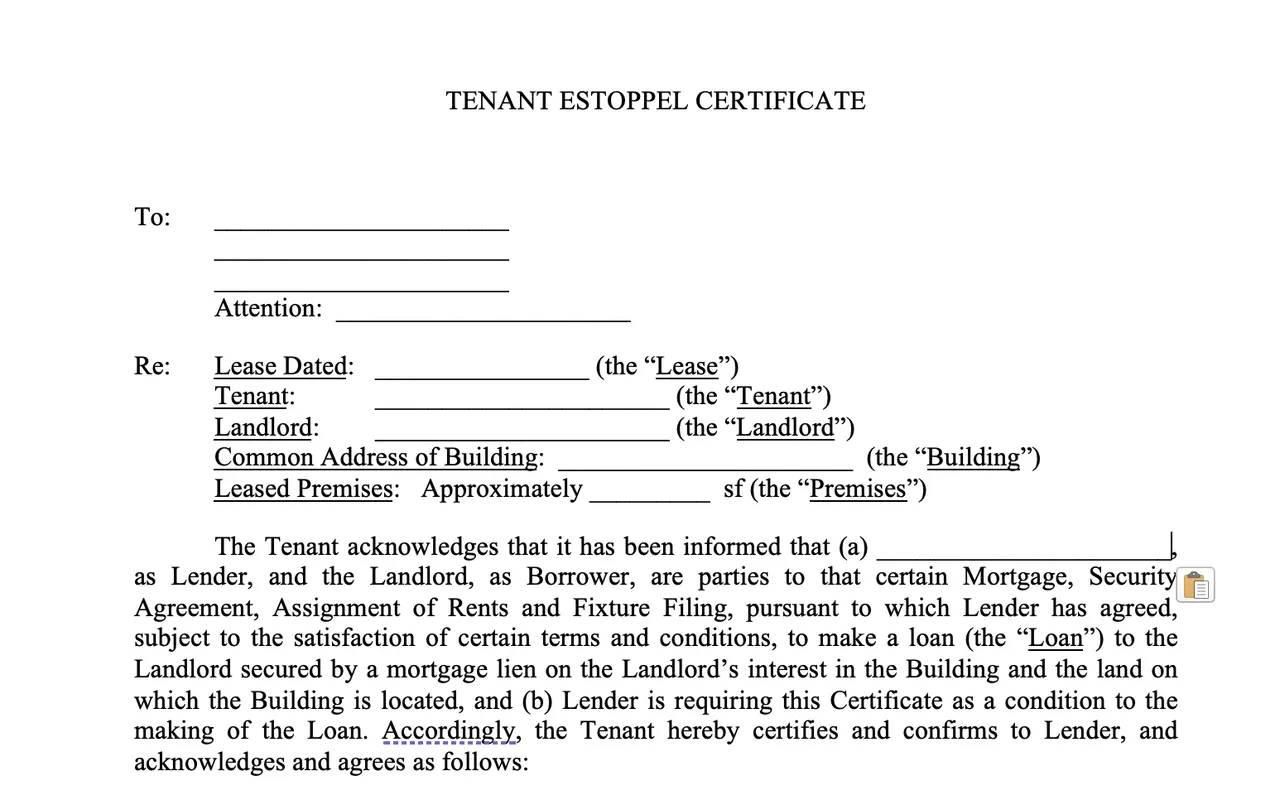One of my clients called me yesterday. They are a professional service business that rents space from a landlord. They told me the landlord stopped by with an “estoppel certificate,” asking them to look at it and sign it with the expectation that they would come by again the next day to pick it up. Before doing so, the client wisely called me.
This is a huge no-no. Estoppel certificates can be extremely important for tenants. Why?
First of all, what is an estoppel certificate? It’s a document a tenant signs confirming the material terms of a lease. A landlord usually requests these documents in connection with the sale of the property and/or financing of the property.
Estoppel certificates literally do what they say: they stop, or prevent, a tenant from later contradicting its terms. And that’s the case, even if the terms of the estoppel certificate are inconsistent with the terms of the lease. If a tenant signs an estoppel certificate contradictory to the lease, the terms of the estoppel will usually control. The reason for this is because a purchaser or lender is relying on the tenant’s statements regarding the lease to purchase or finance the property.
So yes, estoppels are a big deal. What should you do when asked to sign one? First, you stop and take a breath. Second, you get a copy of the lease. Odds almost always are you don’t have to return the document tomorrow. A lease usually says how much time a tenant has to complete and return an estoppel certificate before it becomes an issue under the lease. For a smaller tenant, I usually try to get two weeks. Larger national tenants will insist on 30 days and have all kinds of conditions attached.
Then, you should compare all the provisions in the estoppel certificate to the provisions in the lease. If there are any inconsistencies, you should correct them in the estoppel certificate. Otherwise, you could be on the hook for whatever statements are in that certificate.
If there are any issues under the lease that you’ve been complaining about with the landlord, this is the perfect time to raise them. Why? Because the purchaser or lender isn’t going to want to deal with an angry tenant. They’ll want the landlord to solve these problems now. If there are any disputes about payments, rent, or other material terms in the lease, make sure you bring them up in the certificate. You’re likely going to get some action. It may not make the landlord happy, but this is your chance to rectify these problems in your favor.
Lastly—and I’m sure you knew this was coming—if you have even the slightest doubt about anything, get on the phone or email your lawyer right away. I can usually help clients with these matters quickly and at a reasonable cost.
Call to Action:
If you’re a tenant facing an estoppel certificate or any other lease-related issue, don’t hesitate to reach out to me at The Stejkowski Law Firm, LLC. With 30 years of experience in commercial real estate law, I can provide the guidance you need to protect your interests. Contact me today at 312-373-7242 or visit my website at stejlaw.com to schedule a consultation.


